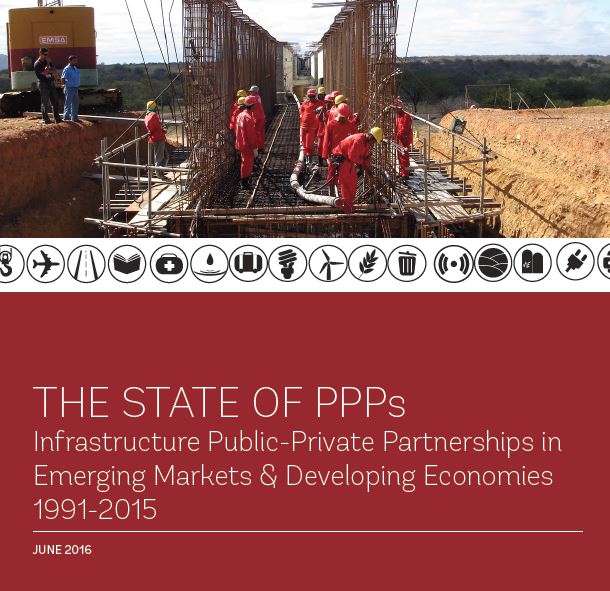923 results found
Featured results



More results
The paper discusses the state and the way forward for Africa's infrastructure, with a strong focus on quality infrastructure.

This brief outlines some new technological solutions for energy storage in emerging markets

ICA’s flagship report, Infrastructure Financing Trends in Africa, shows trends of financing flows to infrastructure projects in Africa based on collected data from various stakeholders.

The objective of this review is to analyze the current status on achievement of targeted benefits from distribution privatization and identify the gaps between expectations and realizations, with a key task of proposing concrete procedures and methodologies to ensure that EMRA and other government agencies involved in monitoring and enforcing quality in electricity distribution and retail have timely access to reliable information on service actually provided by the DISCOMs to their customers.

The Global Infrastructure Hub will unite with APEC (Asia-Pacific Economic Cooperation) to exchange key knowledge and help countries to unlock private investment to finance much needed public infrastructure.
Investors are most concerned about political and regulatory stability and the liquidity of the infrastructure market when considering funding public infrastructure, a new survey has revealed.
The Joint MDB Statement for Crowding-in Private Finance builds on the previously approved Principles for MDBs’ Strategy Crowding-in Private Sector Finance for Growth and Sustainable Development, and the 2016 Joint Declaration of Aspirations on Actions to Support Infrastructure Investment.


This report seeks to identify key capital markets instruments that can help mobilize institutional investors to infrastructure and small and medium enterprises (SME) financing in emerging market economies (EMEs).


The study identifies opportunities for investment to improve sustainable urban transport and mobility in five African cities

On 3 August 2016, the Lowy Institute hosted Global Infrastructure Hub CEO Chris Heathcote in conversation with G20 Studies Centre Project Director Tristram Sainsbury.



The G20 Finance Ministers and Central Bank Governors have welcomed the launch of a new, interactive online risk allocation tool, the Global Infrastructure Hub’s (GI Hub) Annotated Public-Private Partnership (PPP) Risk Allocation Matrices. The Risk Allocation Matrices tool, developed by the GI Hub in partnership with global law firm Norton Rose Fulbright, has been designed to assist developing economies better assess potential infrastructure investment risk.
The purpose of the present publication, Towards better infrastructure products: a survey of investor s perceptions and expectations of infrastructure investment , is to conduct the first in-depth study of the perceived role by infrastructure assets for investors.

We are pleased to share the findings of an infrastructure investment study, released today by the Global Infrastructure Hub (GI Hub) and EDHEC Infrastructure Institute-Singapore (EDHECinfra). The global study, which looked to identify investor expectations for the sector, found that investors have an increasing appetite for infrastructure including in emerging markets, with the number of investors looking for exposure to emerging markets set to more than double over the next 3-5 years.
GI Hub CEO Chris Heathcote appeared at the Asian Infrastructure Investment Bank’s (AIIB) first annual meeting on June 25-26. Mr Heathcote appeared on a panel discussing ‘Infrastructure and Global Economic Growth’.
The PFRAM, developed by the IMF and the World Bank, is an analytical tool to assess the potential fiscal costs and risks arising from PPP projects.

This paper provides a condensed yet substantive overview of the key international lessons learned in the area of PBMC.


This report uses data from the PPI Database to analyze broad trends of PPP investment in infrastructure from 1991 to 2015.









 PPP Risk Allocation Tool
PPP Risk Allocation Tool




